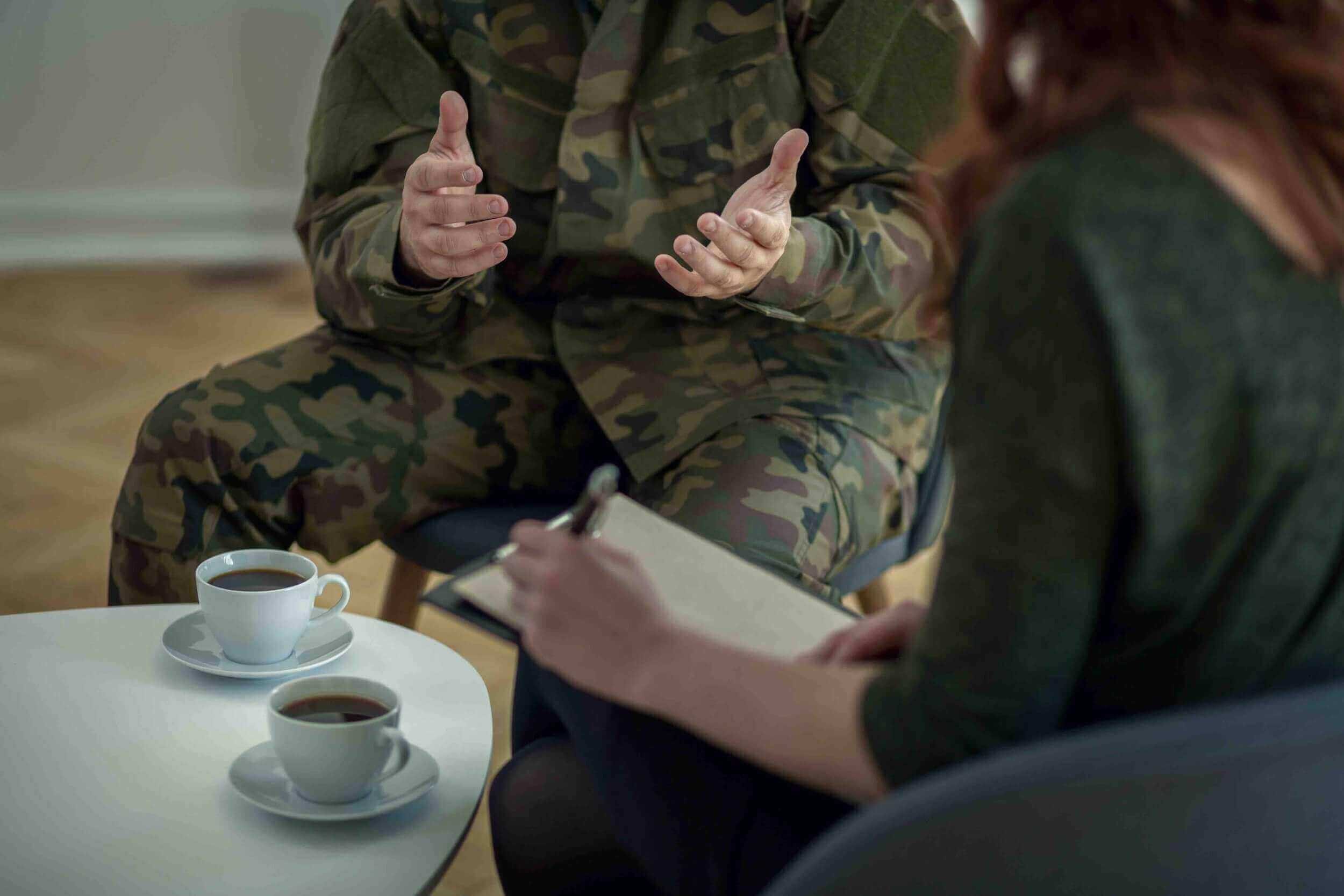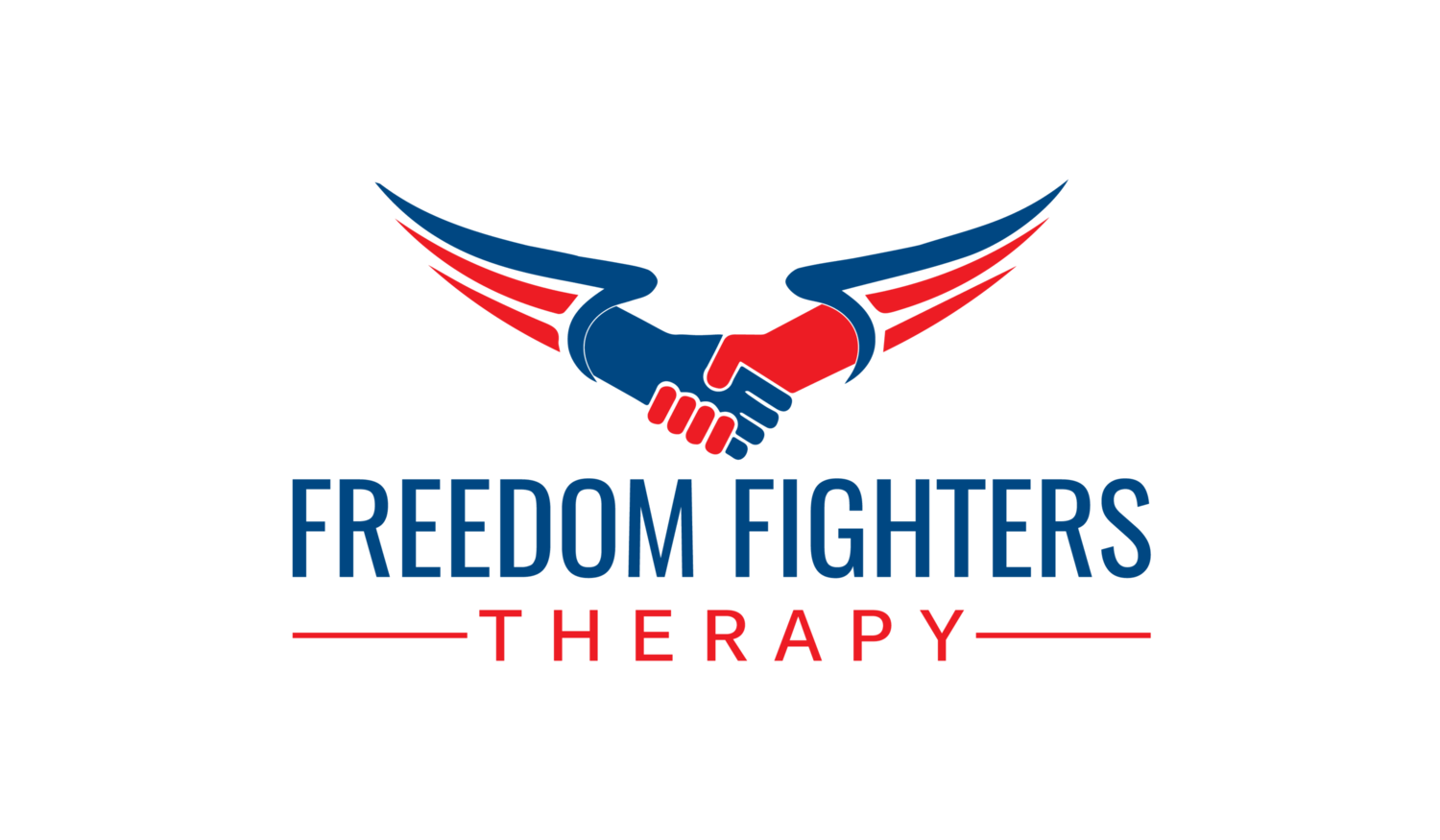
Clinical Anxiety in Veterans
The Journey Back to Self
Anxiety can affect any age group, race, or gender
but veterans in particular are prone to developing anxiety disorders.
Veterans and Emergency Service Workers face unique psychological obstacles particular to their line of work, and being ‘combat ready,’ can also mean exposing yourself to high-stress environments for long periods and experiencing overlapping, complex traumas. Adult life is riddled with intensifying responsibilities already, and veterans acclimating back into civilian life due to discharge or retirement will face even more anxieties, because their environment is so suddenly changed.
In the simplest terms, veterans will often miss military life, or even deployments and danger because at the time, the environmental input of danger matched the output of their anxiety, and when input matches output, they feel more in control. The evenness of input and output makes them feel level.

Learn more about Anxiety
An anxiety disorder isn’t a disorder if the anxiety is warranted, and fear so often saves veterans whether they’re being hyper-vigilant in hangers, overseeing artillery or aircrafts, or out in the field with their boots on the ground. The stress and anxiety they are outputting is proportional to the danger and stakes at hand, and so clinical anxiety may only begin to present as a problem for a veteran once they’re out of the way of danger.
Clinical anxiety may present as attacks, sometimes mistaken for cardiac events or seizures, sudden faintness, heart palpitations, the shakes, a general, vague sense of intense dread or fear disproportionate to a situation at hand, and all of this can cause real physical unwellness. This stress can bring on fevers, chills, shortness of breath, and long or short term gastrointestinal illness. It’s also true that these traits of anxiety can be symptoms of a larger problem, such as Mood Disorders, Personality Disorders, Explosive Disorders, Adjustment Disorders, (C-)PTSD or other illnesses.
No matter if the anxiety has come alone or brought friends, chronic, clinical anxiety can be life-altering for the worse and should be treated with sensitivity and meaningful intervention. Active duty military and emergency services offer little room for failure, making those lines of work immensely stressful.
You deserve help.
For veterans the very lives of their fellow servicemen and the lives of civilians have relied upon them doing every part of their job right, every single time, which is not just humanly impossible, but an unsustainable mindset. This way of thinking is common in veterans, though. Perceived flaws, setbacks, or small errors in work or interpersonal behaviors become associated with and equated to failure, and failure so often equates to danger that mistakes or malfunctioning become entangled with the concept of failure. This conflation can make asking for help immensely difficult for a veteran; veterans may know they’re struggling, but because there has been an unconscious internalization that struggling or having flawed thoughts or behaviors is equivalent to failure, which in turn is dangerous to others, it becomes difficult for a veteran to admit that their anxiety is becoming debilitating.
Life in the military offers rigid, but predictable routines, and set-in-stone rules on how to behave, and how to achieve certain goals. Expectations within the service are simple to manage, even as the work can be severe and unforgiving. Civilian life is much softer and much more fluid with no rigid routines that anyone can force upon you, and nothing is necessarily set-in-stone. There are a million avenues to get to where you want to go, and while that can feel freeing and exhilarating, it can also be overwhelming and aggravating after operating for so many years in another mode of thinking and behaving.
Rejoining the civilian world can be terrifying in this way, and the anxiety that once served to keep you alive can become something that instead leaves you uncomfortable, wrong-footed, and off-balance. At its worst, it could be causing long term damage to your physical health, with your body undergoing stress it’s manufacturing to meet the needs of an environment you’re no longer in. Clinical, chronic, or complex anxiety can be paralyzing, but help is available.
Call us at (937) 998-4133 or email us at freedomdayton@gmail.com, and we’ll get you started on the journey back to yourself





